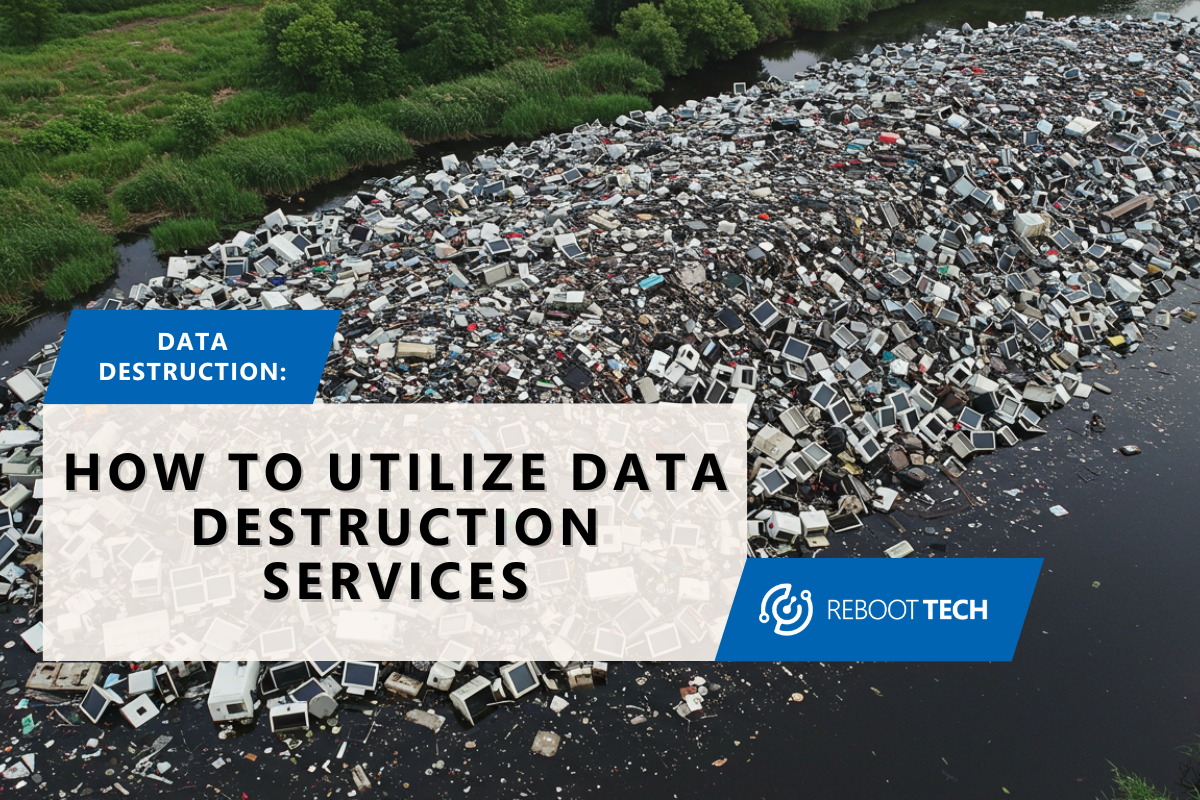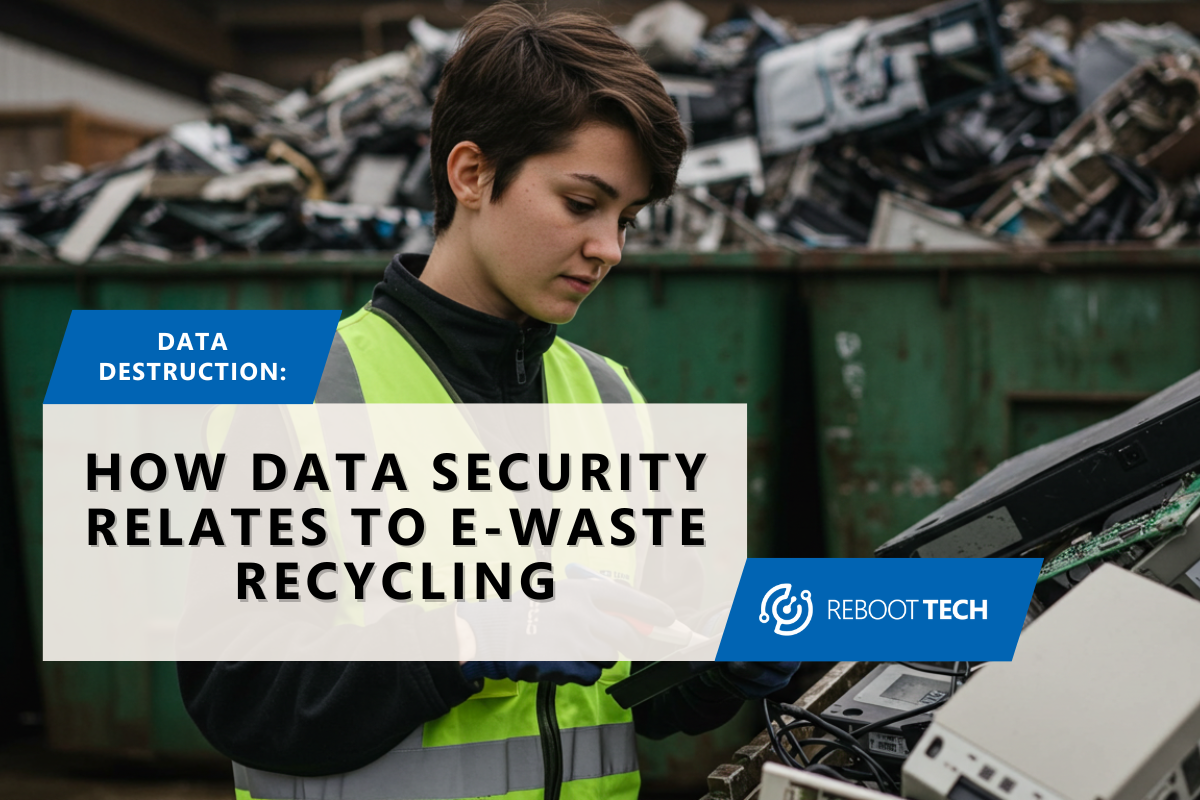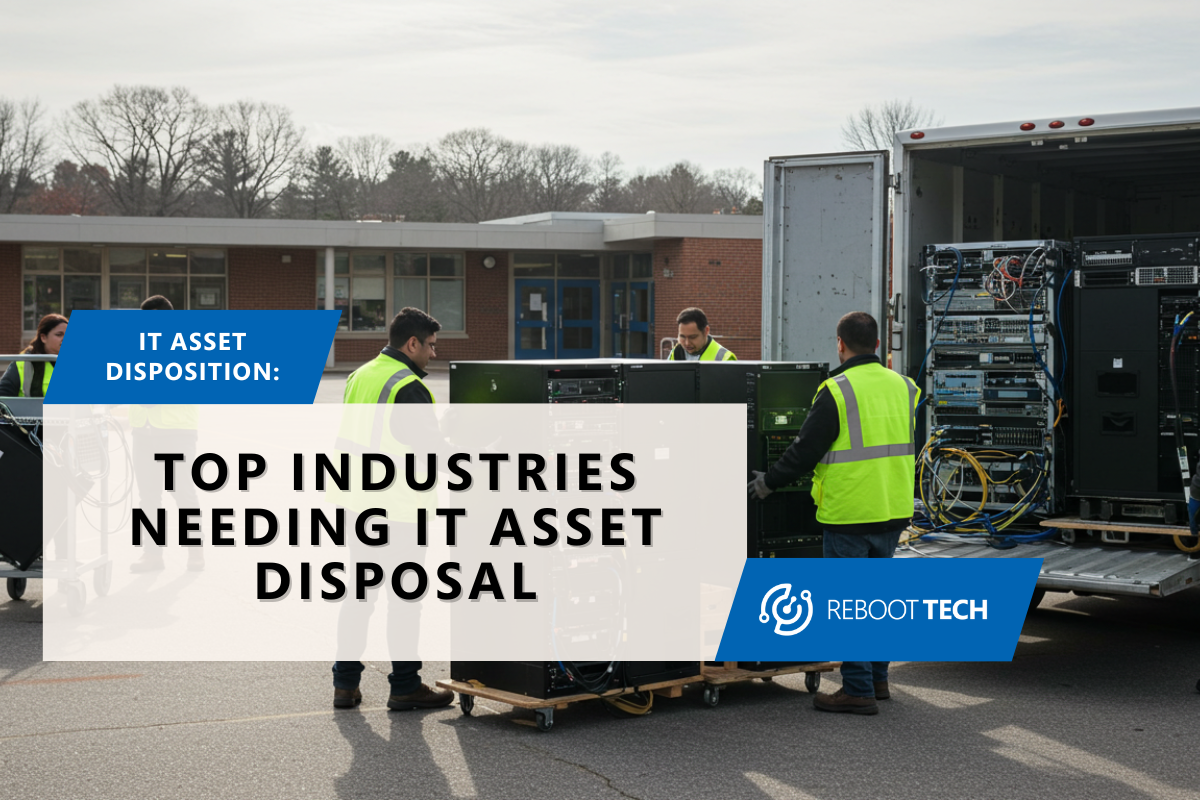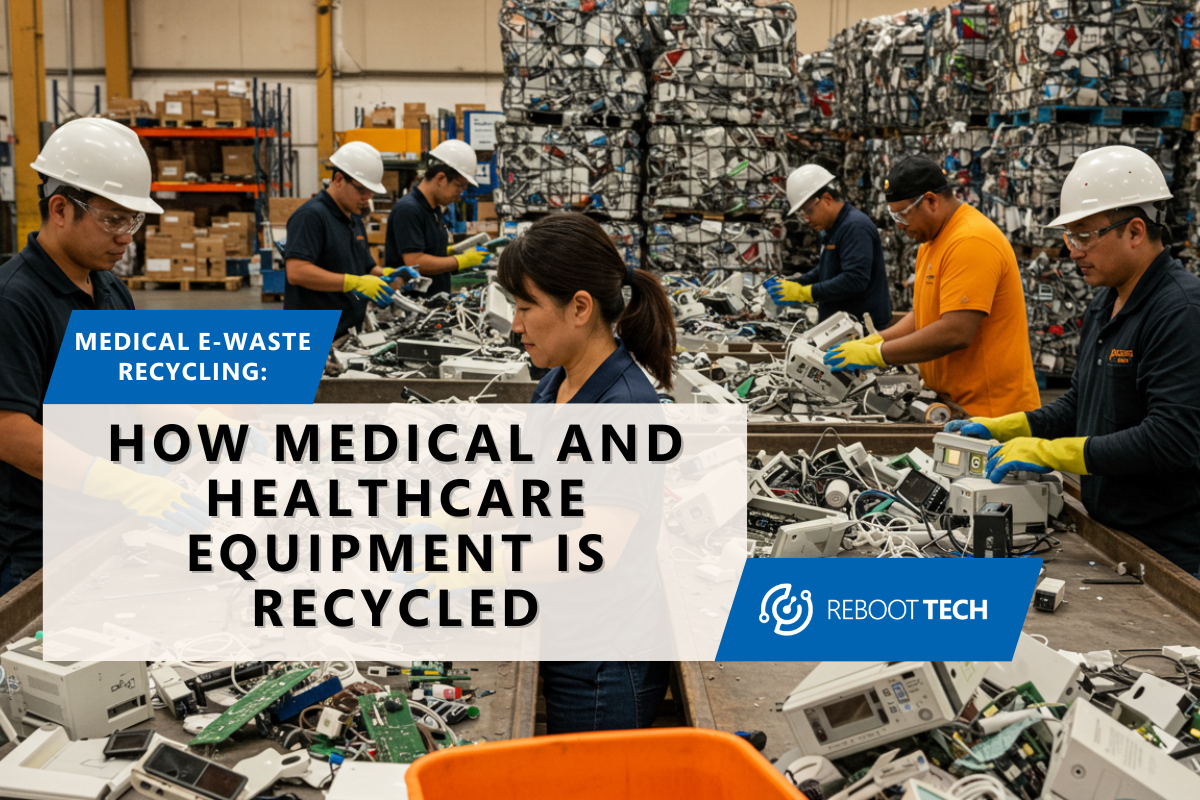
The Importance of ITAD In Hospitals
Every business should strive to be environmentally responsible and green. But why is this especially important for hospitals? Sustainable IT Asset Disposition (ITAD) responsibly is important for hospitals. This is because it protects patient data and any other sensitive information.
Not only that, but good ITAD can help hospitals and the environment. That’s specifically important since it can reduce air pollution and improve patient health. Disposing of data and being environmentally conscious of the electronics Hospitals’ throw away can be tough though.
In today’s healthcare landscape, technology is growing rapidly to improve patient health. The downside is that it creates an overflow storage of electronics that Hospitals simply don’t know what to do with. Let’s explore why sustainable ITAD matters for hospitals and how companies like Reboot Tech help provide services.

The Scope of Healthcare Data and Cyber Breaches
More than 249 million people were affected by healthcare data breaches between the years of 2005 and 2019. There are many reasons that this can happen, but one of the main causes is that most healthcare records are becoming digital.
Additionally, healthcare is naturally connected to various providers, insurers, and third-party vendors. This makes them more vulnerable to cyber-attacks. Staff may also not be well-trained to deal with these things, as that’s not their specialty.
Understanding Sustainable ITAD

What exactly is ITAD? IT Asset Disposition (ITAD) is about securely getting rid of old IT equipment while minimizing environmental impact and maximizing value. It involves tasks like data destruction, equipment refurbishment, electronics recycling, and selling used equipment.
Tens of millions of medical devices are in use at hospitals around the world. These range from MRI to CT scanners to patient monitors. ITAD offers hospitals a structured approach to dispose of their old equipment.
The Struggles Hospitals Face
Hospitals face special challenges with ITAD and e-waste management. They need to follow strict data security and HIPAA rules, and they usually have limited resources for getting rid of equipment. Finances can be a major struggle for them.
For example, some Hospitals operate 24/7, which creates an increase in electronic use. With so much time dedicated to patients and with hours of operation being so long, it makes it harder to spend time on proper ITAD and e-waste management.
The long hours also create a financial burden. Purchasing special equipment for safe e-waste disposal can make a tight budget even worse. Another challenge is the lack of education or training for staff as this may not seem important to Hospital managers.
For instance, staff may throw away old computers or medical devices without knowing it can lead to data security risks. After all this, there’s a risk of harming the environment if electronics aren’t disposed of correctly.
Specific Types of Medical Equipment Recycled
Certified recycling companies (Including Reboot Tech) recycle a wide range of medical equipment, including:
- MRI and CT scanners
- X-ray machines
- Ultrasound equipment
- ECG machines
- Patient monitors
- Infusion pumps
- Laboratory equipment
By recycling these devices, Reboot Tech and many other companies help hospitals reduce electronic waste, recover valuable materials, and minimize their environmental footprint.
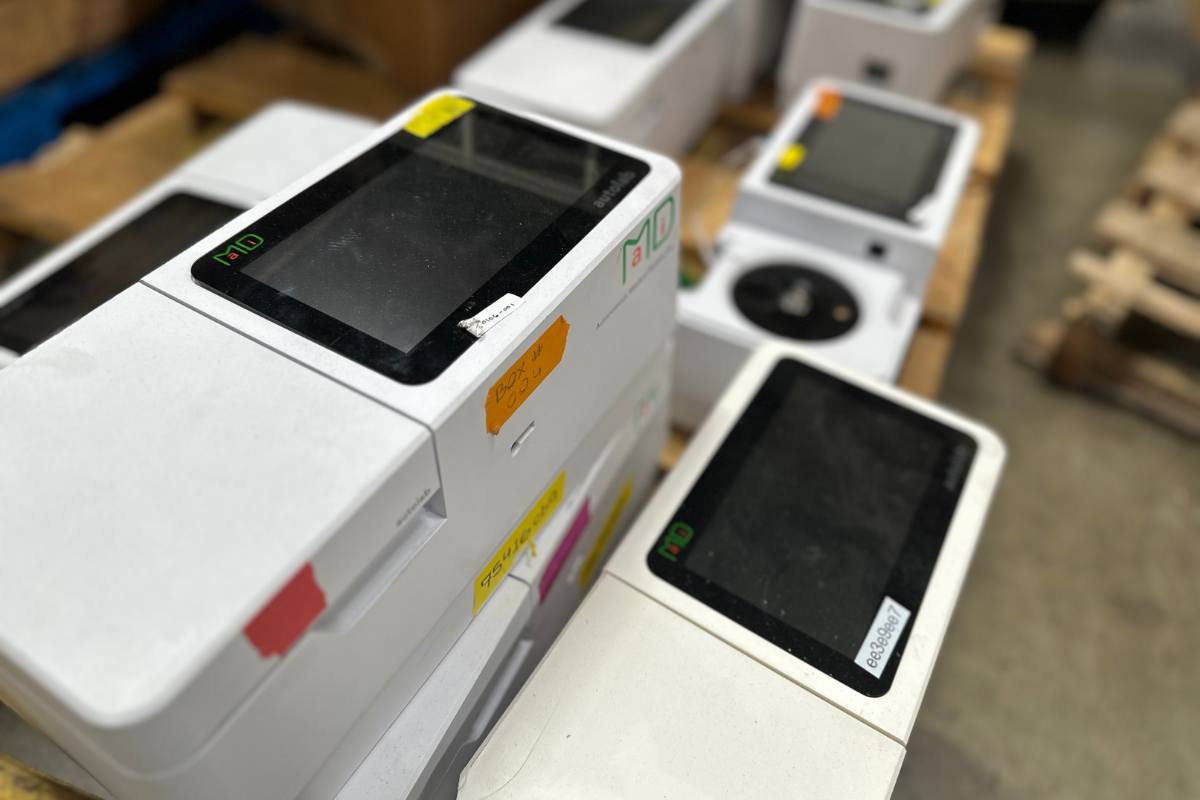
Importance of Data Security
Data security is very important in healthcare because hospitals have sensitive patient information and medical records. Securely destroying data stops data breaches, and identity theft, and keeps companies up to date with the law.
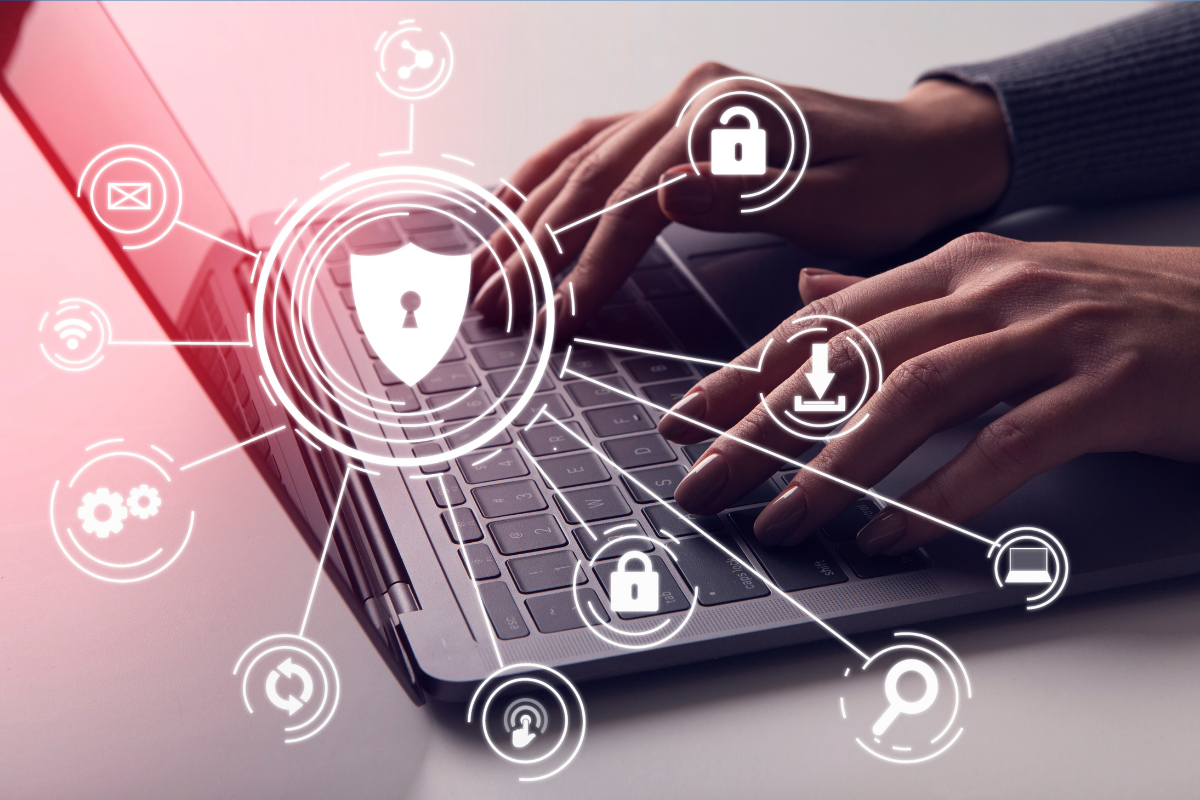
The consequences of a data breach can be very bad. For example, a patient who has HIV/AIDS goes to a hospital and has that accessed by a hacker. This information should stay private, and if released, the patient can be embarrassed or discriminated against. This person may get ridiculed in the workplace and it could lead to emotional distress.
If a data breach occurs, this can happen to multiple people. This can lead to people losing faith in the hospital. As a result, the reputation will decline. Or even worse, the hospital could face several lawsuits since they failed to protect their patient’s data.
Secure Data Destruction Processes
Luckily, there are ways to make sure that lawsuits or loss of faith never happen. Several ways to delete data securely exist. First, is physical destruction. This is important because data can still be accessed if all you do is simply delete the information.
Hackers have special software that can access deleted information. To make sure that the data is completely gone, it is good to have it physically destroyed at a recycling center.
Another way is to wipe the data. This is done by erasing data from storage devices such as hard drives or tapes. Secure data destruction should also be done with proper certification. Before having data destroyed, make sure the recycling center is compliant with industry standards.
Navigating Sustainable ITAD
Sustainable ITAD helps hospitals manage IT assets responsibly, protect sensitive data, and reduce their environmental footprint. Companies like Reboot Tech play a key role in recycling medical equipment and providing secure data destruction services. The goal is to help hospitals navigate the challenges of sustainable ITAD in the healthcare industry. By using sustainable ITAD, we can protect patients’ data, and have a greener future.


